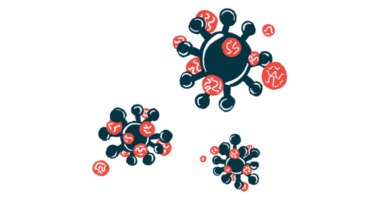China OKs Clinical Testing of First CAR T-cell Therapy in NMOSD
Equecabtagene autoleucel is also being sought as a treatment for myeloma

Authorities in China have granted IASO Biotherapeutics the go-ahead to begin clinical testing of the experimental CAR T-cell therapy equecabtagene autoleucel in people with neuromyelitis optica spectrum disorder (NMOSD), IASO announced.
NMOSD is an autoimmune disorder wherein the body’s immune system launches an inflammatory attack that damages parts of the nervous system. B-cells are a type of immune cell that plays a central role in this disease-driving autoimmune attack.
CAR T-cells are immune cells equipped with a human-made molecular receptor, called a chimeric antigen receptor or CAR, that can specifically bind to a particular molecular target with extremely high specificity. When the receptor on a CAR T-cell binds to its target on another cell, it triggers the CAR T-cell to destroy the target cell.
Equecabtagene autoleucel contains CAR T-cells specifically equipped with a receptor against BCMA (B-cell maturation antigen), a protein expressed on the surface of B-cells.
“As one of the first companies to conduct research on CAR-T to treat autoimmune diseases worldwide, our BCMA CAR T-cell therapy represents a significant milestone for Investigator Initiated Trial (IIT) data of relapsed and refractory NMOSD,” Wen (Maxwell) Wang, MD, PhD, IASO’s CEO and chief medical officer, said in a press release.
The therapy was originally developed by IASO and Innovent Biologics as a treatment for myeloma, a cancer caused by the out-of-control growth of B-cells. China’s National Medical Products Administration (NMPA) is reviewing an application that seeks approval of equecabtagene autoleucel as a myeloma treatment.
The NMPA has now approved an investigational new drug application, or IND, for NMOSD, permitting clinical testing in this condition. This is the first time any CAR T-cell therapy has been given IND clearance for NMOSD by any government worldwide, according to IASO. The company said it plans to initiate the clinical study per submitted protocols, but did not provide additional details.
The NMPA’s decision was supported by data from an investigator-initiated clinical study that enrolled 12 people with NMOSD who still had substantial disease symptoms after at least a year on an immune-suppressing treatment. All were given an infusion of equecabtagene autoleucel at one of two doses (500,000 or 1,000,000 cells per kilogram of body weight).
Results showed both doses were generally well tolerated, according to IASO. All the participants had an inflammatory reaction called cytokine release syndrome, though all cases were mild to moderate in severity. None developed a severe neurological side effect called immune effector cell-associated neurotoxicity syndrome (ICANS) that has been reported with CAR T-cell treatments.
Scores on the expanded disability status scale (EDSS) decreased in all participants, indicating less disability, following equecabtagene autoleucel treatment. Half the patients reported improved visual acuity after treatment, while 67% saw an improvement in walking ability and 75% had better bladder function.
Over a median follow-up time of 5.5 months, only one of the 12 participants had disease symptoms recur, according to IASO.
As a potential treatment for NMOSD, equecabtagene autoleucel has previously been given breakthrough therapy designation by the NMPA, as well as orphan drug designation by the U.S. Food and Drug Administration.







